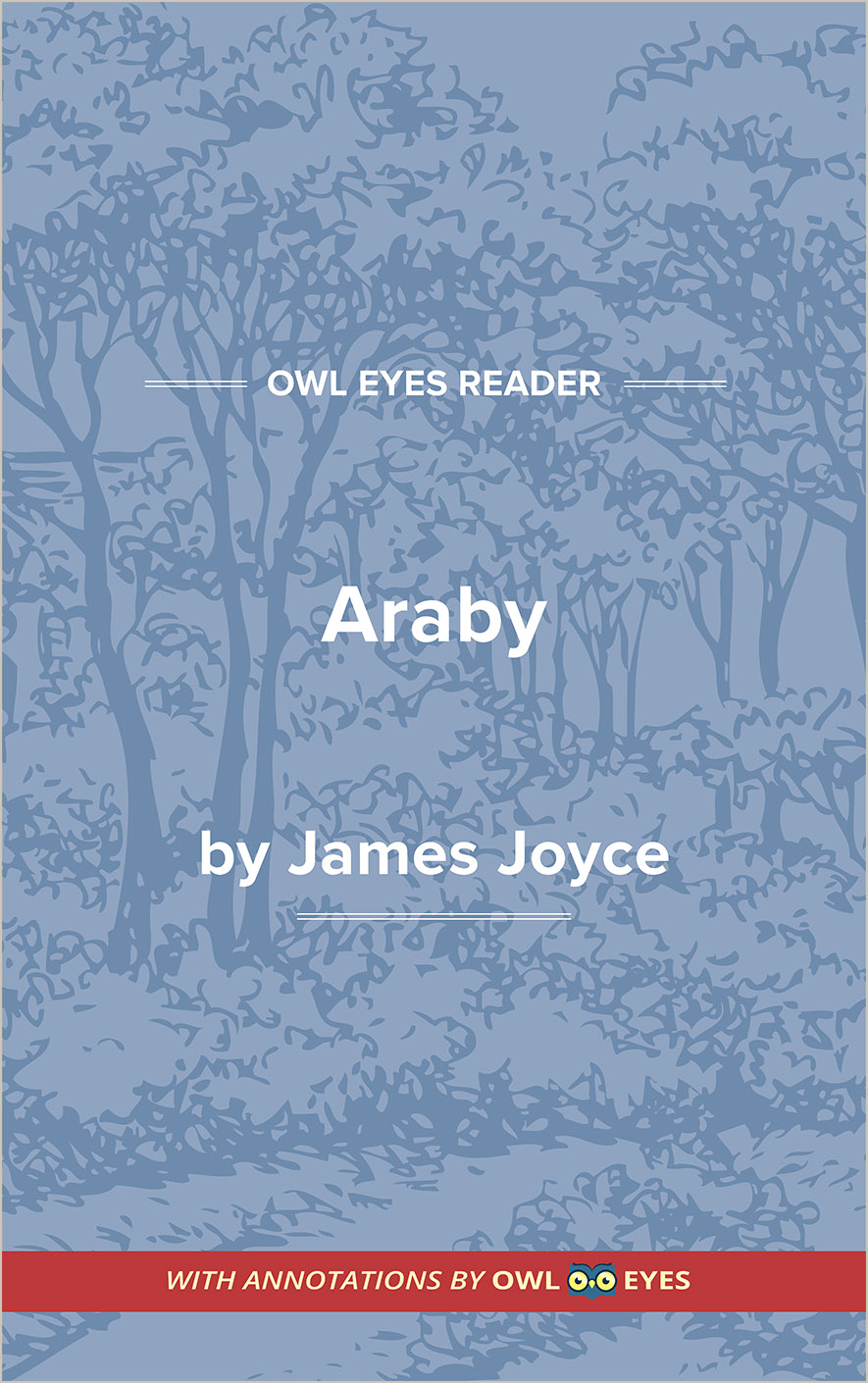Analysis Pages
Symbols in Araby
James Joyce’s "Araby" is rife with symbolism, particularly symbolism that supports religious or romantic themes.
Mangan’s sister: With descriptors like “her figure defined by the light from the half-opened door,” coupled with the reverence the narrator has for her, Mangan’s sister can be interpreted as a symbol for the Virgin Mary. This acts as another example of irony, in that the object of the narrator’s supposed romantic love is a symbol of religious purity, and also serves to highlight the narrator’s ambiguous understanding of romance and religion.
Rusty bicycle-pump: Widely regarded as one of the seminal literary devices in “Araby”, the symbolism of the pump is multi-faceted. The rust represents the passing of time, and its presence in the priest’s garden reflects Joyce’s belief that the Church’s time has passed. Meanwhile, the phallic image of the pump, positioned within the garden, foreshadows impending confusion between religion and sex.
Fall: This is not an object symbol, but rather a recurring word with symbolism beyond its literal meaning. Its appearances foreshadow the narrator’s future “fall” from innocence, just like Adam and Eve in the Garden of Eden.
The narrator’s house: Another symbol for the demise of the Church. If we understand the house to be a representation for Ireland as a whole, then the fact that the previous tenant, a priest, died demonstrates the disdain Joyce had for Roman Catholicism.
Symbols Examples in Araby:
Araby
🔒"I listened to the fall of the coins..." See in text (Araby)
"Cafe Chantant..." See in text (Araby)
"She held one of the spikes, bowing her head..." See in text (Araby)
"rusty bicycle-pump..." See in text (Araby)
"The former tenant of our house..." See in text (Araby)

